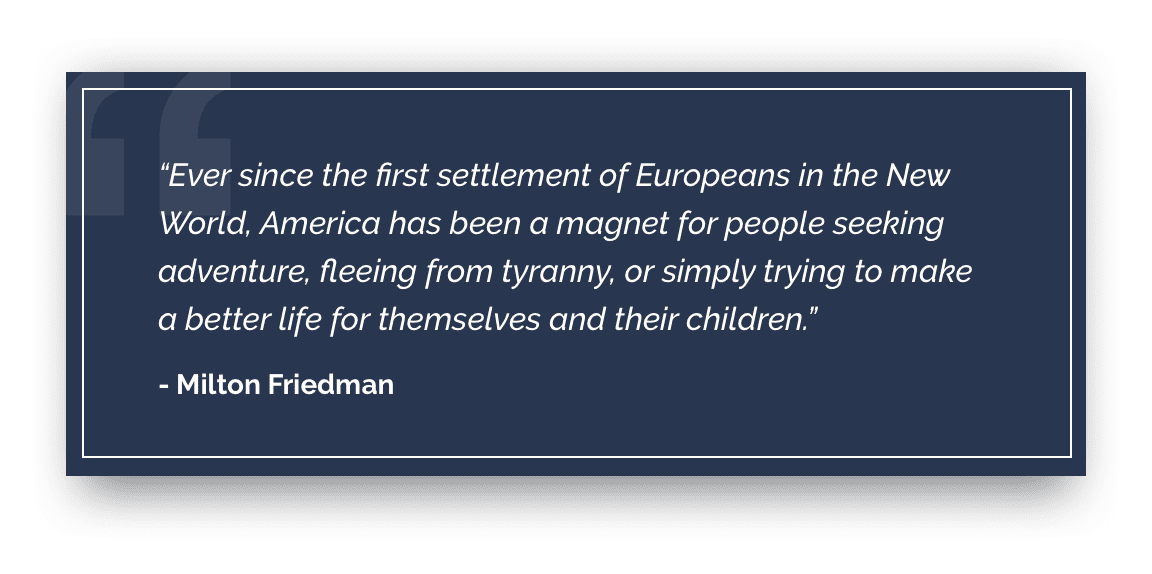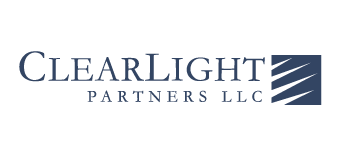Why Private Equity Likes Founder and Family Owned Businesses
Read time: 3-4 minutes
“A big business starts small.” (Richard Branson)
Introduction
If you speak with a lower middle market private equity fund about what they look for in an investment, their comments will often include something like, “We like to invest in founder- or family-owned businesses.” Others may introduce more complicated jargon and say, “We prefer to be the first institutional capital into a business.” These statements essentially mean the same thing. Why, though, does this matter? It matters because there are actually a lot of different types of entities from which you can buy a business, founders and families being one of them, and making an investment in each scenario may require a nuanced approach to dealing with the seller in question. For the sake of illustration, the table below highlights the common entities form which businesses are acquired.
| Seller Type | Description |
|---|---|
| 1. Founder or Family | Individuals or a collection of related shareholders that control a privately held company. |
| 2. Venture Capital Fund | A professional source of early stage capital for founder-led businesses that show strong upside potential. |
| 3. Private Equity Fund | Another source of professional capital though for established, profitable businesses. |
| 4. Employee Stock Ownership Plan |
Often referred to as an “ESOP”, this is a benefit plan that gives workers an ownership interest in a company. ESOPs are overseen by a trustee who acts as a fiduciary to protect the assets of the ESOP for the beneficiaries. |
| 5. Another Business | Other corporate entities that may seek to sell (or, “divest”, or “carve out”) operating units that are non-core or underperforming. |
| 6. Public Company Shareholders | Public companies can be acquired from shareholders and “taken private” if they are willing to pay a premium to entice the shareholders to sell. |
So, given that many private equity funds pursue founder- or family-owned businesses as a strategy, they have clearly determined that acquiring from individuals as opposed to other investment groups or corporate entities is an attractive approach. This article will explain why, but first let’s understand where all these family-owned businesses came from by learning about the origins of entrepreneurship in the U.S.
A Brief History of Entrepreneurship in the U.S.

Ever wonder from where the word entrepreneur originated? Turns out it dates back to 1723, and we adapted it from the French word entreprendre which means “undertake”. Today, we define entrepreneur as follows1:
- Entrepreneur (än-trə-p(r)ə-‘nər): One who organizes, manages and assumes the risks of a business or enterprise
In the United States, entrepreneurship has a rich history that spans hundreds of years. Famous Economist and Nobel Laureate Milton Friedman once wrote, “Ever since the first settlement of Europeans in the New World, America has been a magnet for people seeking adventure, fleeing from tyranny, or simply trying to make a better life for themselves and their children.” One could even argue that America, as a nation, was in a sense built by investor-backed entrepreneurs. For example, in 1607 the Virginia Company of England sent three ships on a four-and-a-half-month voyage to colonize American plantations. The 100 or so passengers that disembarked settled and developed what became Jamestown, Virginia. Relevant here is that the Virginia Company was a joint-stock company which allowed for investment in ventures with limited liability if the business failed, which was a good thing because it ultimately went broke. You win some, you lose some.

While not often regarded for his entrepreneurial skills, Daniel Boone could be considered an early archetype of the American pioneer / entrepreneur who in 1799 departed Kentucky for a fresh start and settled along the Missouri River on a thousand or so acres of land then part of Spanish Louisiana. It was the Western migration of Boone and others that is credited with establishing the foundation for capitalism’s success in America. During this period, a majority of these pioneers were farmers, eking out a living on small family farms, and it’s important to keep in mind that the cost of failure for such pio-preneurs was not merely financial, many paid with their lives. In the early years, Westward migration proved challenging due to the limitations of undeveloped routes amidst the wilderness, but ultimately wagon-based travel became feasible followed by steam-powered locomotives which revolutionized human transportation. It was the railroads that were both fueled by and facilitated future entrepreneurship. Interestingly, some also cite the railroads as the origin of modern managerial systems given that the expanse of the railroads’ operations required new methods for managing organizations with a distributed geographic footprint.
It’s hard to believe, but prior to 1811 there had been a mere seven companies incorporated in North America. This all changed when New York State permitted incorporation by law upon filing out the proper paperwork which freed the process from bureaucratic legislative acts and politics. As a result, the number of corporations started in the U.S. increased dramatically, and the state of Pennsylvania alone incorporated more than 2,000 businesses between 1800 and 1860. Consequently, the American dream of being in business for oneself expanded to include small merchants and independent craftsmen.
During the latter part of the 19th century, further Westward expansion and government incentives for industries such as the railroads, banking, and land acquisition led to tremendous opportunities for profit, which allowed entrepreneurship to flourish. During this period, entrepreneurship can also be credited with propagating capitalists, innovators, prospectors, financiers, and businessmen who created and expanded existing businesses. It was this period that gave rise to big business and many household name companies within oil, steel, tobacco, shipping, railroads and banking. These industries were largely unregulated, though, which led in some cases to monopolistic power and the inevitable ensuing regulation to establish a more stable business environment for companies of all sizes.
Continuing a trend that began in the latter part of the 19th century, the 20th century ushered in a dramatic increase to the scale and complexity of business in the U.S. In many industries, small enterprises had trouble raising capital and operating at a scale large enough to efficiently produce goods for an increasingly sophisticated and affluent population. In this environment, the modern corporation, often employing hundreds or even thousands of workers, further rose in prominence. This period was responsible for the formation and success of such businesses as Ford Motor Company (1903), Hewlett Packard (1939), McDonald’s (1940), Wal-Mart (1945), Southwest Airlines (1967), Microsoft (1975) and Apple (1976).
Fueled by the internet, the 21st century has been marked by lower barriers to business formation and the creation of a new array of tech-enabled manufacturing and service-based companies both large and small. We’ve come a long way from the pioneering ventures of early settlers and those who sought better fortunes in other parts of the U.S. While the look, feel and focus of American entrepreneurs has changed over the years, the drive to undertake and build profitable businesses has endured paving the way for the successful family businesses of today so frequently sought after by private equity investors.
The Benefits of Investing in a Founder or Family Owned Business

Finally, and without further ado, here are some of the main reasons why lower middle market private equity funds like investing in founder or family-owned businesses:
- There are a lot of them. One estimate is that there are 28.8 million small- and medium-sized businesses (SMBs) in the U.S. and that 19% of them are family owned. So, 28.8M x 19% = ~5.5M family-owned businesses into which private equity can flow.
- Aging Baby Boomer business owners are seeking liquidity. Of the ~5.5 million family-owned businesses in the U.S., nearly 4 million, or ~75% are controlled by Baby Boomers. And, given that Baby Boomers are defined as those born between 1946-1964, that means that the Boomers are now aged between 55-73. To that point, 47% of family business owners now report that they intend to retire within the next five years. So, we are amidst a wave of estate planning-driven business sale activity that is buoying the population of target companies eligible for PE funds.
- Most family-owned businesses do not survive generational transitions. Sad but true – only 30% of family businesses survive the transition from first to second generation ownership. Even worse is that only 12% survive the handoff from the 2nd to 3rd It’s like the old saying, “Shirtsleeves to shirtsleeves in three generations.” Most business owners are all-too familiar with these statistics and related adages, so they are looking for a safe set of hands to usher their life’s work into the future while creating a lasting home for their employees to continue their careers. In many cases, private equity funds are the perfect acquiror insofar as they manage companies by profession and will increase the odds of a successful change in ownership.
- Ability to develop a rapport with the founder and/or owners of the business. When you acquire a business from a corporate entity or institutional investor, the discussion is largely around price as the chief determining factor in whether the seller will transact. However, deal discussions with a founder or family are much more nuanced. Founders, rightfully so, want to know that what they’ve bled, sweat and cried for is going to endure into the future. So, this creates an opportunity to build a meaningful relationship with the founder to ensure that there is a shared vision and a strong working chemistry insofar as they will continue to be involved after the deal closes.
- The founder or family will often retain some ownership. I don’t know about you, but the notion of buying 100% of a company from a founder who has no intention of remaining involved with a company post-closing is scary to me. This would be like someone throwing the keys at you after purchasing a car, wishing you well and then screeching off into the distance never to be seen again. Not a good sign. The best transactions are where the prior founder or family retains a meaningful amount of equity in the company and is aligned to help continue building the company with you. After all, these are the people who architected the vision, strategy and culture to get the company to the point where a PE fund would want to invest in the first place.
- Tangible growth opportunities. Once a company starts to generate substantial cash flow, the incentives to grow it can be at odds with the perceived risks of disrupting a comfortable lifestyle that a business owner has come to enjoy. Said another way, if an owner is generating $5 million in EBITDA and is making more money than they ever dreamed they would, why undertake the investment and risk associated with growing the bottom line? This dynamic is prevalent with many founder and family-owned businesses and creates the opportunity for a PE fund to execute on numerous “low hanging fruit” growth initiatives that have not yet been pursued.
How Private Equity Helps Founder and Family Owned Businesses
| Explanation | |
|---|---|
 1. Wealth Diversification 1. Wealth Diversification |
For many entrepreneurs, their business represents their largest single financial asset. This concentration of wealth created by the business creates an inherent risk to their net worth should something happen to adversely affect its valuation. Therefore, a transaction with a private equity fund helps to diversify a business owner’s net worth by generating liquidity (i.e. cash) for the founder or family owner. |
 2. Team Development 2. Team Development |
While many family or founder-owned businesses can generate strong growth and profitability for a time, they will ultimately stagnate if they haven’t invested in a team that can manage a larger organization with its new assortment and complexity of challenges. And, we routinely see certain departments that have been under- or undeveloped such as Finance or Sales. The good news is that private equity funds are in the common practice of helping companies supplement their teams with high quality talent who can help the business get to the next level. |
 3. Business Building 3. Business Building |
Beyond team development, many founder and family-owned businesses have not fully embraced best practices regarding systems or process. In order for small companies to become big companies, they need to be built upon a framework that will support the transition to a larger organization. This applies to things like data capture & analysis, workflow management, compliance, and financial controls. Given that private equity funds invest across a portfolio of companies, they have an excellent vantage point to identify and help implement the necessary systems and/or processes to help management teams drive their business forward. |
 4. Financial Sophistication 4. Financial Sophistication |
Private equity funds have earned a reputation for taking an analytical eye to the businesses in which they invest. Frequently, a founder or family-owned company’s prior reporting processes will evolve under new ownership to become both more strategic and granular. Business owners will get a flavor of this during the due diligence process when an investor begins analyzing the business to better understand it. A test of whether a fund is focused on the right things is if an owner gains new and valuable insight about their company that they had not previously considered. The end goal is for a company’s investors and management team to know precisely where the key drivers of value exist and focus on the areas that really move the needle. |
 5. Capital For Growth 5. Capital For Growth |
Don’t forget that private equity funds often reserve capital to support the growth of their partner companies beyond what it takes to close the deal. For many businesses, growth via the acquisition of smaller businesses in the same industry can be an excellent way to increase scale and profitability. So, if you aspire to acquire smaller businesses and fold them into your organization, make sure to ask any investors with whom you are speaking about their ability to fund future deals. |
 6. “Two Bites of the Apple” 6. “Two Bites of the Apple” |
In many cases, a private equity fund will want the founder or family shareholders to retain some ownership following a transaction. The helps ensure that the person or people that drove a company’s prior successes are aligned with the new investor’s goal of supporting future growth. The amount of retained ownership varies for each deal but generally ranges from 10-30%. By holding onto some of the equity in the business, owners stand to benefit from the next exit if the business increases in value. In some cases, we’ve seen the proceeds from an owner’s second transaction, or the “second bite of the apple” exceed proceeds from the initial transaction. |
Conclusion
We hope this sheds some light on why private equity funds like investing in founder and family-owned businesses. As always, we’re here to help, so give us a call to start a conversation.
_______
1Merriam Webster
About ClearLight Partners
ClearLight is a private equity firm headquartered in Southern California that invests in established, profitable middle-market companies in a range of industry sectors. Investment candidates are typically generating between $4-15 million of EBITDA (or, Operating Profit) and are operating in industries with strong growth prospects. Since inception, ClearLight has raised $900 million in capital across three funds from a single limited partner. The ClearLight team has extensive operating and financial experience and a history of successfully partnering with owners and management teams to drive growth and create value. For more information, visit www.clearlightpartners.com.
Disclaimer: The views and opinions expressed in this blog are solely my own and do not necessarily reflect any ClearLight opinion, position, or policy.



